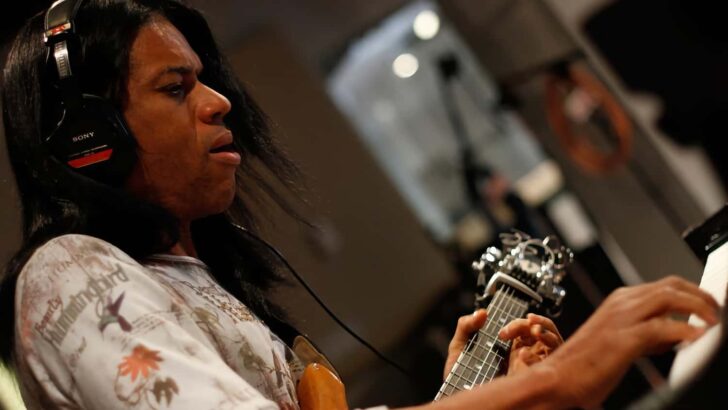The second season of the Composers & Computers podcast has launched, with an in-depth look at the work of jazz legend Stanley Jordan, and how his computer music studies at Princeton informed his unique approach to playing the guitar.
The Composers & Computers podcast series, produced by Princeton’s School of Engineering and Applied Science, explores the school’s role in the early development of computer music. Host Aaron Nathans interweaves stories about science, art, friendships, and the links between the computational and musical realms at Princeton.
This episode is a fascinating interview – Jordan discusses granular synthesis, how his interest in building a custom keyboard guitar synthesizer led to the development of his unique polyphonic guitar technique, the influence that Pink Floyd and Wendy Carlos had on him, and more.
You can listen to the latest episode via the embed below, and at the Princeton site:
Summary:
“In Episode 1 of the new season of “Composers & Computers,” we begin our deep dive into the technology-filled life story of Jordan, who went on to a career as an acclaimed jazz musician. We explore how he was initially drawn to Stanford to work with John Chowning, inventor of the Yamaha digital keyboard, but through a twist of fate at the admissions office, found himself headed to Princeton instead.
Chowning himself told Jordan that it was a fortuitous outcome, and Jordan explains why this ended up being true, through meeting two mentors who would have a major effect on his musical path, Milton Babbitt and Paul Lansky.
We’ll look at how he developed his trademark two-hand percussive “touch technique” while he was a student at Princeton. And he’ll talk about his time at the Computer Center and the Engineering Quadrangle, including the time he dropped his punch cards on the floor.”


Saw Stanley Jordan live in a small club about 20 years ago in the US midwest. It was just him, his guitar, and a rack of electronic gear. Tickets were fairly cheap, and the overall sound was a bit thin at times, but I expect he saved a boatload on logistics and hotel costs, by not having a full band.
Performance-wise, it was a seriously great performance, minus the idiots sitting next to me who were more into having a REALLY loud conversation than actually listening in the middle of his performance. So much so that Stanley had to pause in between numbers and ask certain audience members to STFU (my words, not his) so folks who wanted to hear the music actually could.